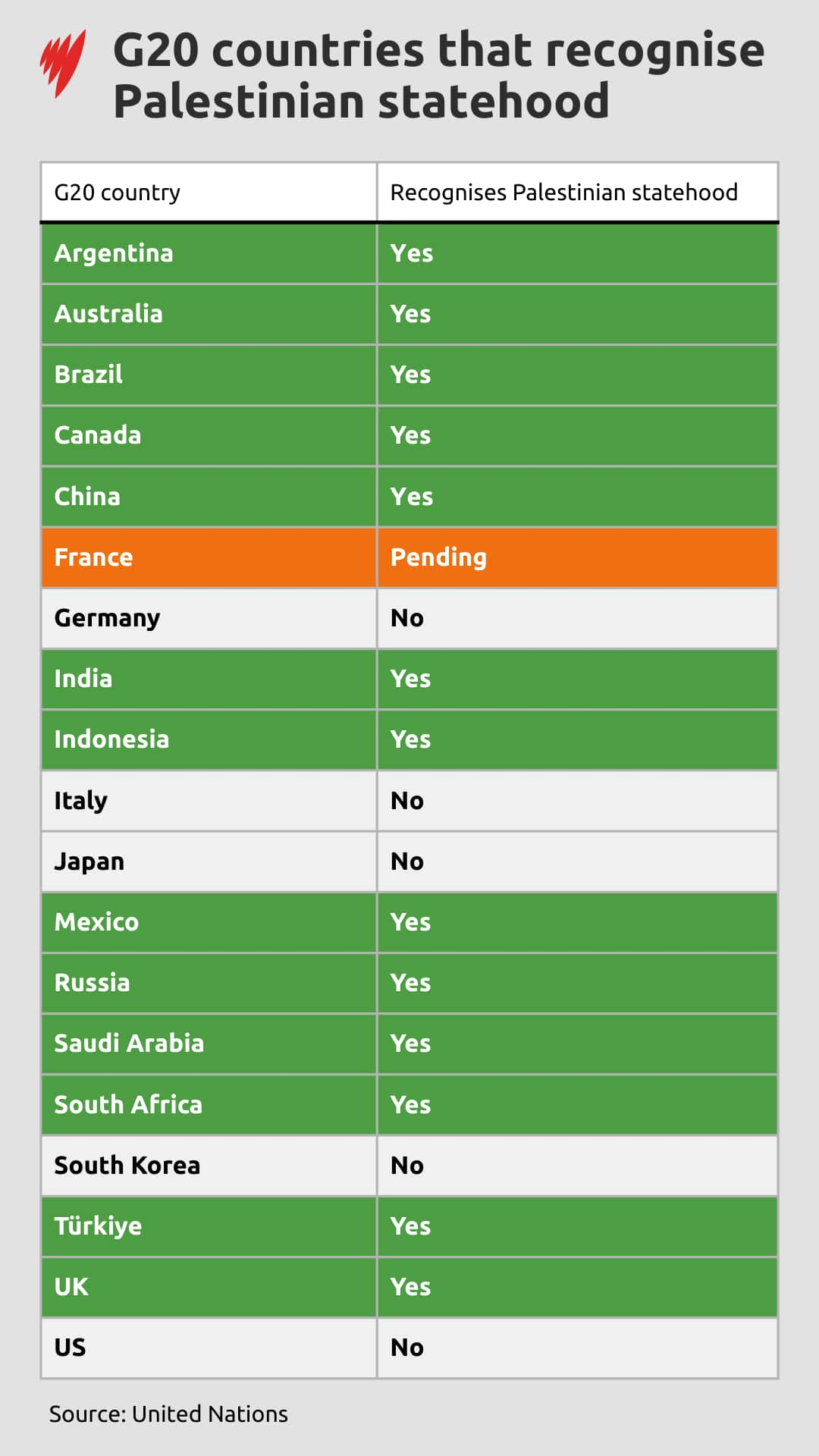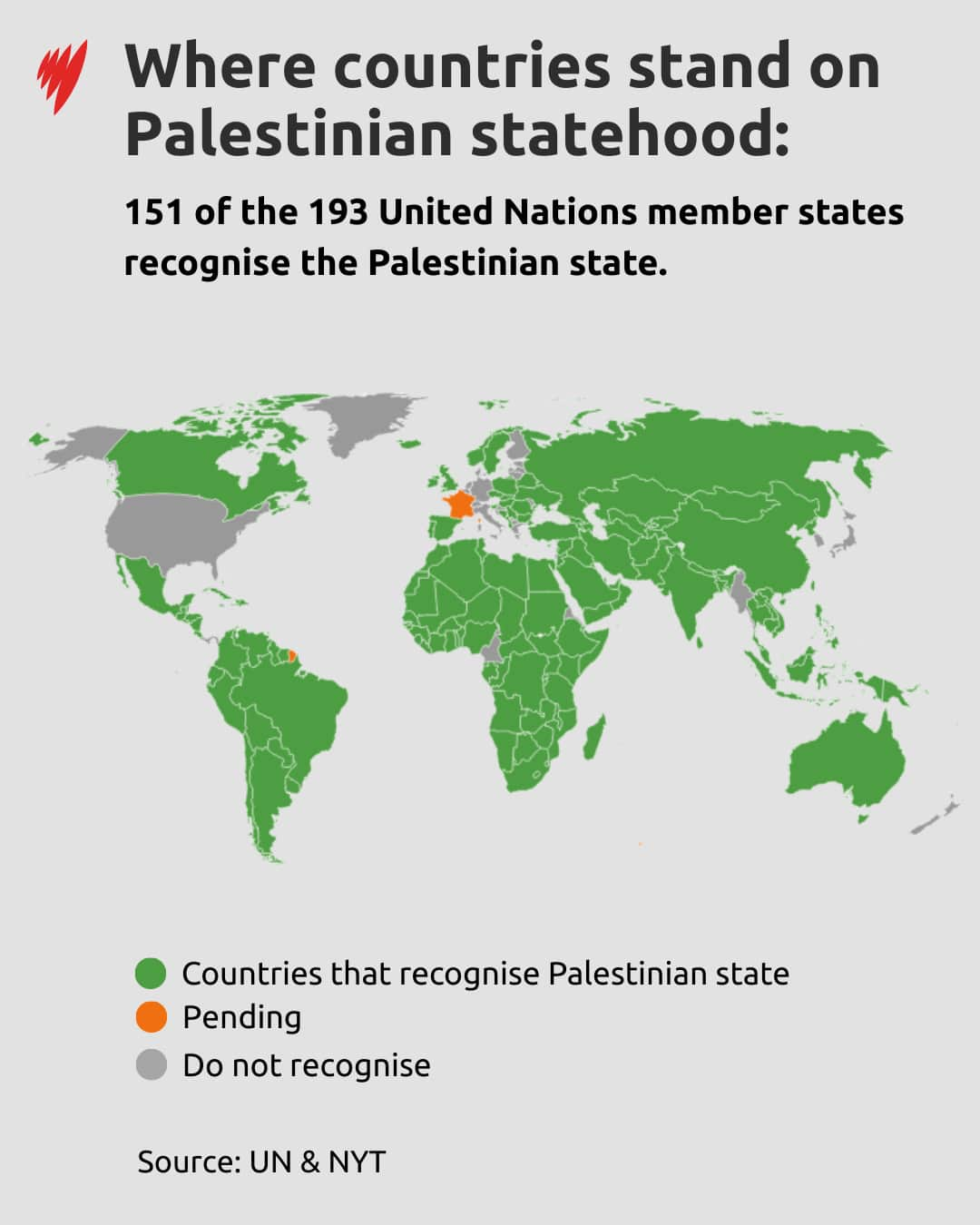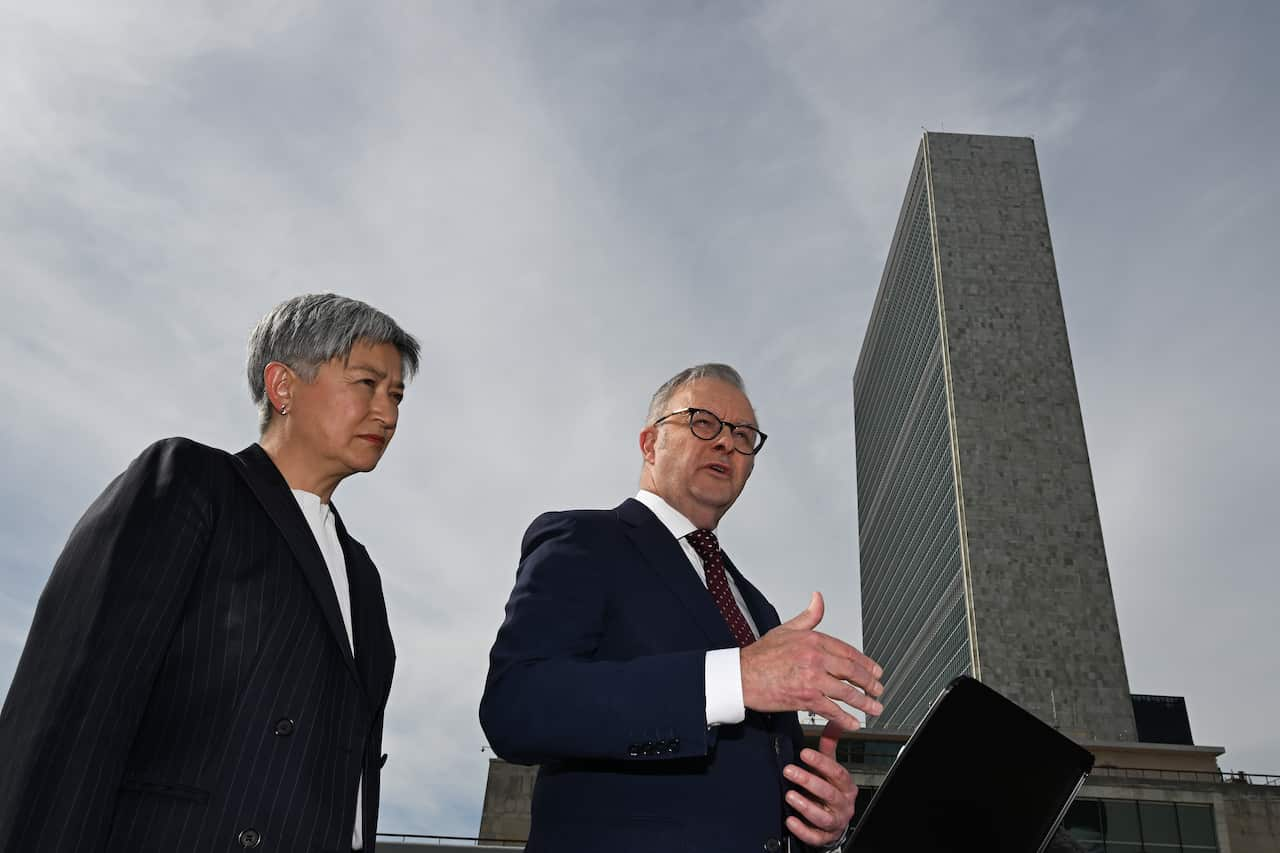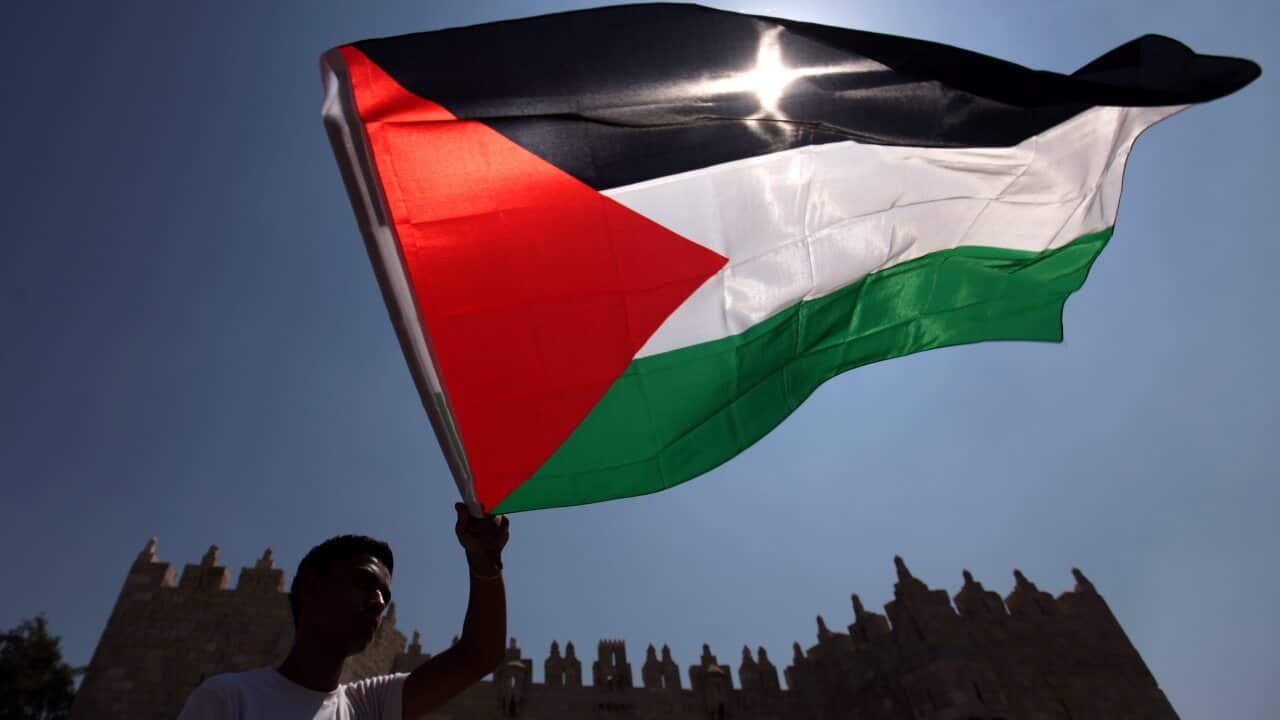Australia is among four new countries that recognise an "independent and sovereign state of Palestine" in a bid to promote a two-state solution and an end to the war in Gaza.
Prime Minister Anthony Albanese's declaration outside the United Nations in New York City on Sunday coincided with similar statements by the leaders of the United Kingdom, Canada and Portugal, prompting outrage from Israel and the Australian Opposition.
"Australia recognises the legitimate and long-held aspirations of the people of Palestine to a state of their own," Albanese and Foreign Minister Penny Wong said in a joint statement.
UK Prime Minister Keir Starmer said formal recognition would "revive the hope of peace for the Palestinians and Israelis", condemning the Israeli government for its "relentless and increasing bombardment of Gaza".
Israeli Prime Minister Benjamin Netanyahu said the leaders were "rewarding terrorism", vowing to prevent the creation of a Palestinian state and continue the expansion of settlements in the West Bank, considered illegal under international law.
The move may spark "punitive measures" from the United States, as 25 Republican allies of US President Donald Trump urged France, the UK and Canada to rethink their position.
The three countries join 151 of 193 UN member states that recognise a Palestinian state, as global momentum grows.
Who first recognised a Palestinian state?
The state of Israel was established by the Israeli Declaration of Independence in 1948 and was admitted as a UN member the following year. It is currently recognised by 165 member states.
In 1988, Palestinian leader Yasser Arafat unilaterally proclaimed an independent Palestinian state with Jerusalem as its capital during the first intifada (uprising).
He announced the two-state solution as a goal, with independent Israeli and Palestinian states existing side by side.
Algeria, Indonesia and Malaysia were among the first group of countries to recognise the state in 1988, with 82 countries in total — from India, Türkiye, and most of Africa to Eastern Europe — doing so by the end of that year.

In 1993, the Palestine Liberation Organization and Israel signed the Oslo Accords — which were heralded as the start of peace talks.
The next wave of recognition from a host of South American countries, including Argentina, Brazil, and Chile, came in late 2010 and early 2011, amid political and social turbulence in the region.
The Palestinian bid for full UN membership in 2011 was unsuccessful.
However, in 2012, the UN General Assembly upgraded the status of Palestinians to that of a "non-member observer state", allowing them a seat but not a vote in the assembly.
In April 2024, the US vetoed a resolution that would have paved the way for full UN membership for the State of Palestine.
Countries join revived push for Palestinian statehood in Europe
Sweden broke ranks and became the first Western European country to recognise a Palestinian state in 2014, joining six of 27 EU member states.
The US, UK, Australia and other Western countries have previously insisted that recognition comes as part of a negotiated peace settlement.

Israel's bombardment of Gaza — which has killed at least 60,430 people, according to the territory's health ministry — in retaliation for Hamas' killing of more than 1,170 people in Israel on October 7 in 2023, has renewed support in Europe for Palestinian statehood.
In 2024, the Bahamas, Trinidad and Tobago, Jamaica and Barbados recognised a Palestinian state.
Later that year, Spain, Norway and Ireland joined efforts in Western Europe, with the hopes that the symbolic move would help work towards a two-state solution.
How has Australia's policy shifted?
Albanese foreshadowed statehood in August when Australia joined 14 other nations in welcoming commitments from the Palestinian Authority.
These included promises to demilitarise a state that they vowed militant group Hamas would have no part in.
Albanese reiterating Australia's commitment to a two-state solution in the Middle East that would allow a Palestinian state and Israel to peacefully co-exist, including a ceasefire and the release of hostages taken on 7 October 2023.
Recognition has already been signed off by the Australian cabinet and does not require ratification in parliament or a UN vote to take effect. It is now the official government policy.

It breaks decades of bipartisan support for recognition to come at the end of a peace process, with Opposition leader Sussan Ley and Opposition foreign affairs spokesperson Michaelia Cash strongly opposing the call.
"The Albanese government extends a hollow gesture of false hope to the Palestinian people," Ley said in the joint statement.
"For the Israeli people, it extends a chilling act of concession to the Hamas terrorists who continue to seek their annihilation.
"The Coalition opposes this decision and calls for it to be reversed."
— With additional reporting by Agence France-Presse and Reuters
For the latest from SBS News, download our app and subscribe to our newsletter.

